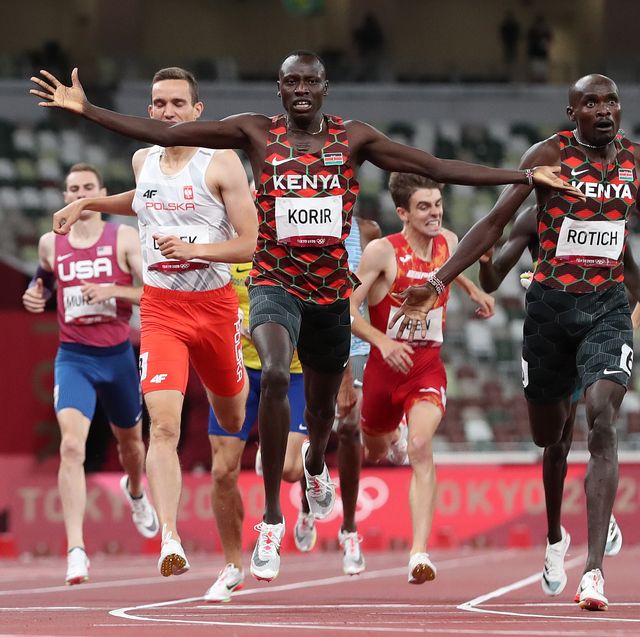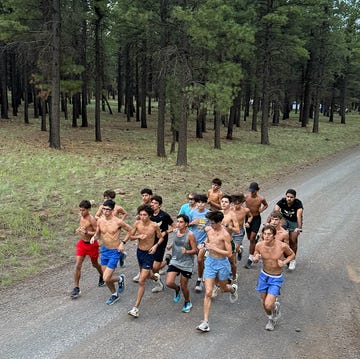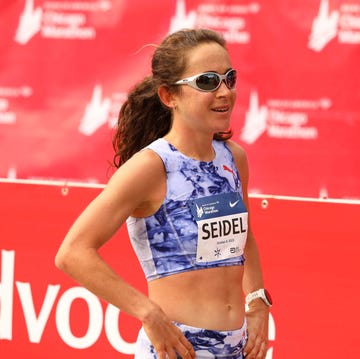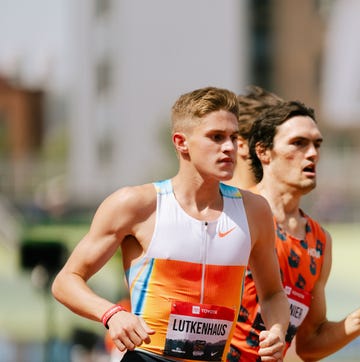Kicking best off of a slow opening pace, Emmanuel Korir of Kenya won the men’s 800 meters in 1:45.06 on August 4 in Tokyo.
Korir’s compatriot Ferguson Rotich made it a 1-2 finish for Kenya, as he moved from fourth to second in the final 20 meters to finish in 1:45.23. Patryk Dobek of Poland took the bronze medalist in 1:45.39.
U.S. Olympic Track and Field Trials champion Clayton Murphy, the 2016 bronze medalist and only American in the field, was never a factor, and placed ninth in 1:46:53.
“I got shuffled back and then just left it too late,” Murphy said. “I was only gonna walk away disappointed one way, and that was if I lost the race, and I lost the race. I want to be right up on that first two, three, especially since it was slow.
“Even with 150 to go, I thought I could still wind it up and at least get a medal,” Murphy said.
The race was tactical from the start, with no one eager to take the lead as they broke from their lanes entering the first backstretch. Peter Bol of Australia led through the first lap in 53.76, two to three seconds slower than usual for a world-class men’s 800.
The slow opening was likely most welcomed by Korir, a former 400-meter specialist who finished sixth in that event at the 2019 World Championships. Nobody could match his sprint once he seized the lead entering the final turn. Bronze-medalist Dobek, formerly a 400-meter hurdler, also benefited from the conservative start.
Bol, who led the race early, held on for fourth in 1:45.92 after being passed by Rotich in the closing meters.
Korir’s win is the fourth consecutive gold by a Kenyan man in the event. His winning time was the slowest since the 2000 Games.
The race was unusual in that there were nine starters, one more than the norm. Nigel Amos of Botswana, the 2012 silver medalist and fastest in the world this year, made the final on appeal, after he tripped over American Isaiah Jewett with 150 meters remaining in their semifinal. Amos finished eighth in 1:46.41.
Cathal Dennehy contributed reporting from Tokyo.














